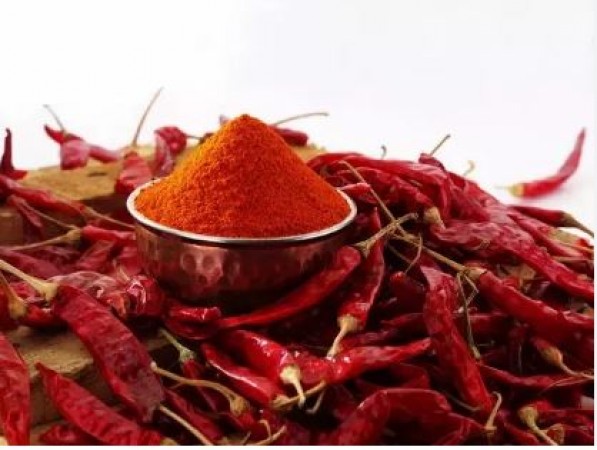
Spices have always been an integral part of culinary traditions worldwide. Among the diverse array of spices, red chili holds a special place for its fiery flavor and culinary versatility. Whether sprinkled over pizzas, added to curries, or incorporated into marinades, red chili is a staple ingredient in many cuisines, imparting not just heat but also depth of flavor.
While red chilies add a delightful kick to dishes, consuming them in excess can lead to various health concerns. Here's a closer look at the potential risks associated with overindulging in this spicy seasoning:
Excessive consumption of red chilies can wreak havoc on your digestive system. The compound responsible for the fiery sensation in chilies, known as capsaicin, can irritate the lining of the stomach and intestines, leading to discomfort, heartburn, and even gastritis in some cases.
For individuals with sensitive stomachs or pre-existing gastrointestinal conditions like irritable bowel syndrome (IBS) or acid reflux, consuming too much red chili can exacerbate symptoms and trigger episodes of bloating, gas, and diarrhea.
Contrary to popular belief, red chilies do not cause ulcers but can aggravate existing ones. Capsaicin can increase stomach acid production, which may irritate ulcerated tissue and delay healing. Individuals with ulcers or a history of gastrointestinal issues should exercise caution when consuming spicy foods.
Handling red chilies, especially in their raw form, can lead to skin irritation and even burns due to the presence of capsaicin. This compound can cause a burning sensation on the skin, particularly if it comes into contact with sensitive areas or if hands aren't washed thoroughly after handling chilies.
While moderate consumption of red chilies may offer cardiovascular benefits due to their vasodilatory properties, excessive intake can have the opposite effect. Consuming large amounts of capsaicin may elevate heart rate and blood pressure, posing risks for individuals with hypertension or cardiovascular conditions.
Although rare, some individuals may experience allergic reactions to red chilies, manifesting as skin rashes, itching, swelling, or even respiratory symptoms like coughing or wheezing. Those with known allergies to related plants, such as bell peppers or tomatoes, should be particularly cautious.
Consuming spicy foods close to bedtime, including dishes laden with red chilies, can disrupt sleep patterns for some individuals. The heat from spicy foods may increase body temperature, making it challenging to fall asleep or stay asleep throughout the night.
Despite the potential risks associated with excessive consumption, red chilies can still be enjoyed as part of a balanced diet. By practicing moderation and being mindful of individual tolerance levels, you can savor the flavor and benefits of red chilies without compromising your health.
While red chilies undoubtedly add zest and flavor to culinary creations, it's essential to approach them with caution and moderation. By being mindful of your body's response and incorporating red chilies in moderation, you can enjoy their fiery goodness without succumbing to the potential pitfalls of excessive consumption.
Do not ignore the gas produced in the stomach, otherwise this dangerous disease can occur!
Why is your mental health deteriorating? Are these habits the reason?